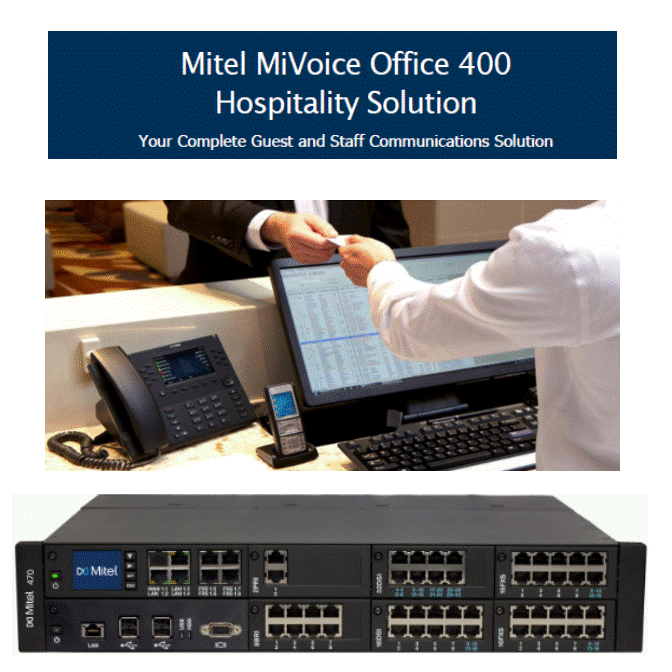BestComm IP PBX Solutions
About PBX Systems
Employees and customers expect simple communications and efficient services, and IP PBX systems are meeting the challenge, at a lower cost to you. Many businesses rely on a complex web of applications to deliver services,
and IT decision makers should choose an IP migration strategy that takes critical service applications into consideration. With the right tools and equipment, your business can reap the benefits of IP telephony, while avoiding the risks and pitfalls.
Almost every enterprise has one: a private branch exchange (PBX), telephone switching equipment that routes and processes calls using the public telephone network, facilitating commonly available features like voice mail, call forwarding and intercom. In hotels, PBX systems manage the thousands of telephone activities throughout the building each day, and are often integrated with important guest service applications such as;
Property Management Systems (PMS)
Customer Service Automation (CSA)
While these behind the scenes activities are invisible to guests, the PBX is critical to the daily operation of the hotel. Today's hotel guest expects an ever-increasing array of communication services, from email to fax, and hotels must meet the competitive challenge with the best possible technology.
IIP PBX systems, which have taken hold among enterprise users, are becoming the new epicenter of employee/customer services. With an IP PBX, features such as real-time billing and intelligent speech recognition are simplifying services. As adoption of this technology moves forward, however, many are challenged to find the right migration path from a traditional to an IP PBX. Deploying an IP PBX is a significant undertaking, and businesses should consider how their trusted applications will integrate with the IP PBX. The IT and MIS staff of your business should know that there are several options to choose from when deciding to make the transition to IP telephony.
PBX in Hotels: A Short History:
Until recently, hotel phone service was a relatively simple technology, consisting of a service provider, a PBX system that routed calls, a call accounting system for billing as well as handsets in the room. The phone network communicates the price and duration of a guest call to the Property Management System (PMS).
The new generation of PBX's offers CRM, computer telephone integration (CTI), video conferencing, data streaming, content delivery network support, storage area network support, and voice over IP (VoIP).
Based on Frost & Sullivan's latest report, the demand for IP PBX will continue to soar over the next five years. In 2005, for the first time since their introduction, shipments of IP PBX's in the United States exceeded traditional PBX. The demand for traditional PBX systems will continue to decline as the need to address the convergence of voice and data transmission increases in importance. In-Stat/MDR expects the number of IP lines shipped in PBX systems to grow from 5.5 million in 2003 to 15.9 million by 2008.
The change in the hospitality industry in handling phone service centers around convergence. The definition of 'communications' has expanded to encompass voice, fax, data, video and email traffic.
Today, as technology has worked its way into every aspect of our everyday life, people also expect these conveniences when traveling. Expectations for communication services are essential to the majority of hospitality guests. It is imperative for a sophisticated communications management system to account for telephone charges as well as internet usage, equipment fees, surcharges and taxes - all in real-time.
The convergence of voice and data onto a single architecture is occurring mainly on Internet Protocol (IP). The argument being made for IP communications centers on the fact that most hotels have a data network already in place, and the network usually has unused bandwidth, that could be used to carry voice calls.
Understanding PBX Systems:
While traditional PBX systems switch telephone calls using the PSTN (Public Switched Telephone Network), or local telephone company, IP telephony consists of technologies that use the internet protocol's packet-switched connections to exchange voice, fax, and other forms of information that have traditionally been carried over the telephone networks of the PSTN. Using the Internet or local enterprise network, calls travel as packets of data on shared lines, avoiding the calling costs of the PSTN, and improving efficiency.
In a hotel environment, the PBX is required not only to process and route telephone calls, but to connect to critical applications. Some of these hotel-specific applications include:
1. Station Message Detail Recording (SMDR) - a record of calls originated or switched by the PBX
2. E911 alerting - a critical application that ensures EMT personnel can identify which room placed a 911 call
3. Call Accounting - accounts for telephone charges, internet usage, equipment fees, surcharges and taxes in real-time, facilitating accurate and efficient guest billing
4. Property Management System (PMS) - the property management system is the tracking center for all guest activities throughout a hotel.
One final note:
Since becoming the de facto standard in data communications over the last decade, IP has been heralded as the new frontier for voice communications. While VoIP technology adoption has been rapid amongst enterprise users, many different businesses are just beginning to see the benefits of bringing their PBX onto an existing broadband connection.
Clearly, the transition to IP PBX systems offers great promise to your business. IP systems deliver advanced communications that enhance the communication experience, improve customer service and optimize operational productivity and costs.


